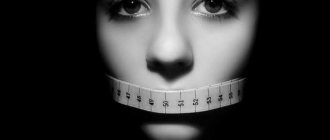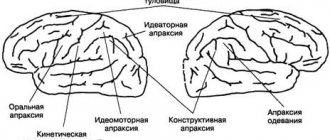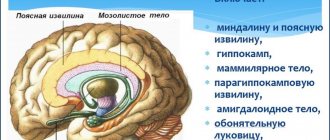Psycho-emotional disorders are getting younger every year. This is due to the general neuroticization of the world's population. Neuroses, psychoses, and depression have become constant companions for residents of large cities, so it is difficult to expect that our generation can raise children with a completely healthy nervous system and psyche. And yet, every parent wants to know what he can do for the well-being of his beloved child.
Childhood depression is one of the types of psycho-emotional disorders that are expressed in a child in certain behavioral and somatic symptoms. This disease can appear at a very early age (up to 3 years), but more often and most clearly manifests itself in adolescence. This is precisely what is associated with the increasing incidence of suicide among teenagers.
Depression in children manifests itself in different ways, through different symptoms, depending on the age of the child and the causes of the disease. Difficulties in diagnosing this disease in early, preschool and primary school age arise because, until the age of 10-12, the child is not yet fully aware of himself and his feelings, and cannot characterize his condition as “sadness, sadness, melancholy” . In these age groups, childhood depression is more often expressed through somatic symptoms, that is, various types of physical ailments in the child. This only leads to long and ineffective visits to doctors, and, alas, to the consolidation of the disease in the psyche and nervous system of the baby.
How to recognize the disease in time? What could cause it? How to prevent the disease from becoming chronic? The answers to these questions vary depending on the age of the child. Let's take a closer look at each age category.
General information
Depression in children is one of the mental and emotional disorders that manifests itself in behavioral changes. Depression in childhood is different from depression in adults.
If a child is sad or irritable, this does not necessarily mean that he or she is depressed. This may be a normal emotional and psychological change that occurs during growth. But if symptoms of depression in children become persistent and have a disruptive effect on the child's social activities, this may indicate that the child is depressed. The child’s behavior may become uncontrollable, he conflicts with others, misses school, which leads to a decrease in school performance. The child may start drinking alcohol, smoking, may associate with “bad company,” and may even reach the point of thoughts of suicide.
Depression can occur even in infants, but more often it occurs in children deprived of parental attention and in boarding schools and orphanages. Negative symptoms tend to accumulate, children cry constantly, they lack parental love and warmth. hallucinations may appear .
Typically, childhood depression lasts from 1 month to a year, often longer. In such cases, it is very important to prevent childhood depression and consult a psychiatrist for all family members.
Adolescence: 12 years to adulthood
Hormonal changes in the body occur, which in itself causes mood swings in the child. The first serious emotional connections arise in the outside world - with friends and the opposite sex; failures in this field are perceived very hard. Attempts to understand oneself, one’s “I”, one’s place in the world give rise to a lot of internal conflicts and contradictions. In parallel with this, the teaching load is growing significantly, and the question of future professionalization arises.
For the first time in all childhood years, the first place comes not from relationships in the family, but from the child’s interaction with his peers, with equals. Their authority during this period is often more important than that of their parents. But do not forget that a favorable psychological climate in the family and acceptance from parents remain with the child for many years, forming solid ground on which your child can always rely and feel confident.
Symptoms of the disease may be the same as in the previous age group. But they are accompanied by significant mood swings, anger, and irritability.
It is in this age group that thoughts of death and suicide attempts most often occur. It is important to understand that such manifestations are an extreme degree of a severe form of depression, which has formed over several months or even years. Therefore, be attentive to your child, because if you seek help in a timely manner, many problems can be avoided.
The list of specialists who need to be contacted for examination and help is similar to the previous age group, only instead of a pediatrician, a teenage doctor is already acting. Also, an additional consultation with an endocrinologist may be required, depending on the symptoms.
Causes of depression in children
The exact causes of depression are unknown; probably, several factors are decisive here - hereditary , physiological , psychological , social . For young children, separation from mother and family due to placement in kindergarten can be negatively impacted; for children over 5 years old, family scandals and parental divorce can have a negative impact. From the age of 7, school problems become the most important factors for depression - changing classes, bad attitude of the teacher, quarrels with classmates.
Most often, childhood depression manifests itself after emotional shocks - the loss of parents, other relatives, the death of a beloved pet, quarrels with friends, or from psychological pressure experienced.
The causes of depression in children can be complex, that is, manifested by impaired health, family relationships, various biochemical changes in the body, physical or sexual abuse.
alcoholism are especially susceptible to depression , and in families with healthy relationships and climate, children most often independently solve emerging psychological problems.
There are also seasonal depression associated with the body's sensitivity to changes in climatic conditions.
Symptoms of depression can be caused by taking certain medications - steroids, painkillers, which contain narcotic substances.
Age characteristics
In preschool children
- Up to 3 years
Reasons: congenital diseases, crisis 3 years. Manifestations: moodiness, tearfulness, sleep disturbances, lack of appetite.
- 4-5 years
Reasons: lack of parental attention, unsuccessful attempts to assert oneself, the need to attend kindergarten. Manifestations: disobedience, excessive independence, tearfulness, aggressiveness, hysterics.
In school-age children
- 6-7 years
Reasons: school maladjustment, problems communicating with teachers or classmates, traumatic situations in the family. Manifestations: despondency, anxiety, isolation, sadness, loss of pleasure from games and gifts.
- 8-9 years
Reasons: most often family, since by this age most couples decide to divorce or have a second child. Both of these can be factors that trigger depression. Manifestations: loss of sociability, activity, friendliness, tendency to loneliness, aggression towards parents or younger brother (sister).
- 10-11 years
Reasons: the beginning of adolescence, social maladjustment, problems with teachers or peers. Manifestations: loss of interest in games and communication, obesity (or weight loss), nightmares, obsessive fears, isolation, decreased cognitive abilities - problems in studying.
- Teenagers
If in children of primary school age depression occurs clearly, is caused by reasons that lie on the surface, and is treated relatively quickly, then with teenagers everything is much more complicated. Provoking factors are quite difficult to find out due to their secrecy and mistrust. The problem is aggravated by the puberty period with a crisis, the manifestations of which largely overlap with the symptoms of a depressive disorder. But the worst thing is that at this age it can end in suicide. Therefore, parents need to be doubly careful.
Symptoms of depression in children
Symptoms of childhood depression are different from those of adult depression. Primary symptoms of depression in children include: irrational fears, sadness, feelings of helplessness, and sudden mood swings. Sleep disturbances (insomnia, drowsiness , nightmares), appetite disturbances, decreased social activity, a feeling of constant fatigue, a desire for self-isolation, low self-esteem, problems with memory and concentration, and thoughts of death and suicide may also occur.
of non-standard behavior often appear - a sharp, unreasonable reluctance to play favorite games, unjustifiably aggressive reactions are observed, children become disobedient and irritable, they “don’t like everything.” Anxiety in people suffering from depression is most severe in the evening and at night.
Typical symptoms of depression in children are somatic symptoms, complaints of ill health, various pains ( headache , toothache, abdominal pain), which are not treated with medication. Panic and neurotic disorders - rapid heartbeat, dizziness , nausea, chills, often accompanied by fear of death. Depression in children is most often disguised as anxiety, decreased performance at school, impaired communication with peers, and apathy. Such ailments can be varied , abruptly replacing each other, or monotonous with one complaint.
The various symptoms of depression in children differ at different childhood ages. For example, the development of children in the first year of life is less often complicated by severe manifestations of depression. Young children's appetite decreases and they become more capricious.
Preschoolers most often experience motor activity disorders, changes in health - frequent headaches, upset stomach, as well as a desire for loneliness, sadness, lack of energy, fears of the dark, loneliness, and bouts of crying. In elementary school, children become withdrawn, timid, unsure of themselves, lose interest in activities and games, and complain of “sadness,” “boredom,” and “the desire to cry.”
The closer to adolescence, the more pronounced the symptoms of irritability, decreased mood, and sadness. With depression, there is increased tearfulness and a willingness to cry at the slightest reason. Children react with increased sensitivity to adults' comments. At school, children can become absent-minded, forget their notebooks at home, do not understand what they read, and easily forget what they have learned. There may be slowness, lethargy , and reluctance to attend sports activities.
Diagnosis of depression in children
If you suspect that your child has depression, you should take this into consideration. You need to be attentive and sensitive to the child’s state of mind, calmly talk to him about what worries him, talk frankly, do not shout or put pressure on him. If your child is bothered by feelings of guilt , explain to him that he is not responsible for what is happening. If the depressed state lasts longer than 3 weeks, you should contact a child psychiatrist .
Many parents try to cope with the symptoms of the disease on their own - they treat the pain with pills, isolate the child from peers, and allow the child not to go to school. However, this is not true, child psychology is a very complex thing, the unformed psyche of a child is still fragile and it is better to entrust the treatment to a specialist. The sooner you contact a specialist, the easier it will be for your child to get out of the painful state. For schoolchildren and adolescents suffering from depression, early diagnosis of depression in children is possible. The diagnosis is made based on a physical examination, psychological tests, and laboratory tests.
Treatment
If a psychotherapist confirms the diagnosis that a child has a depressive disorder, he prescribes comprehensive treatment and advises parents on what to do.
Drug treatment
For depression, antidepressants are usually prescribed for children and adolescents. They relieve pain, calm, smooth out phobias and panic attacks. What can be prescribed:
- Adaptol;
- Tenoten;
- Fluoxetine;
- Sertraline;
- Paroxetine;
- Fluvoxamine;
- Glycine;
- Deprim (from 12 years old);
- Novo-passit (from 12 years old).
For severe depression, Amitriptyline, Azafen, Pyrazidol are prescribed, but only in a hospital setting under the strict supervision of a doctor. Soothing herbal teas and aromatherapy (if you are not allergic to odors) may also be recommended.
Psychotherapy
Various psychotherapeutic approaches help lift a child out of depression:
- cognitive behavioral therapy, which uses relaxation methods in treatment - breathing exercises, projective techniques, play therapy;
- art therapy - absolutely all its types are ideal for treating childhood depression;
- body-oriented therapy eliminates muscle tension;
- symboldrama helps in solving problems that caused the disorder;
- Family psychotherapy restores harmony between family members.
Treatment is carried out on an outpatient basis. Inpatient treatment is required only for severe forms of the disorder, when there have been suicide attempts or psychotic episodes.
In some cases, parents resort to alternative treatment methods: reflexology and pet therapy (communication with animals).
Prevention of childhood depression
The risk of depression can be reduced if you raise a child in families with a calm psychological situation , where relationships are balanced and kind. It is important to respect the child and his moods both in the family and in kindergarten and school. The child will feel better among people who understand and accept him for who he is. Unconditional parental love serves as the foundation for a child’s healthy psyche. It is necessary for the child to play sports, have some kind of hobby, and be able to realize himself in it. Long walks, proper nutrition, and healthy sleep are useful. You need to spend as much time as possible with him - talk, solve problems together.










